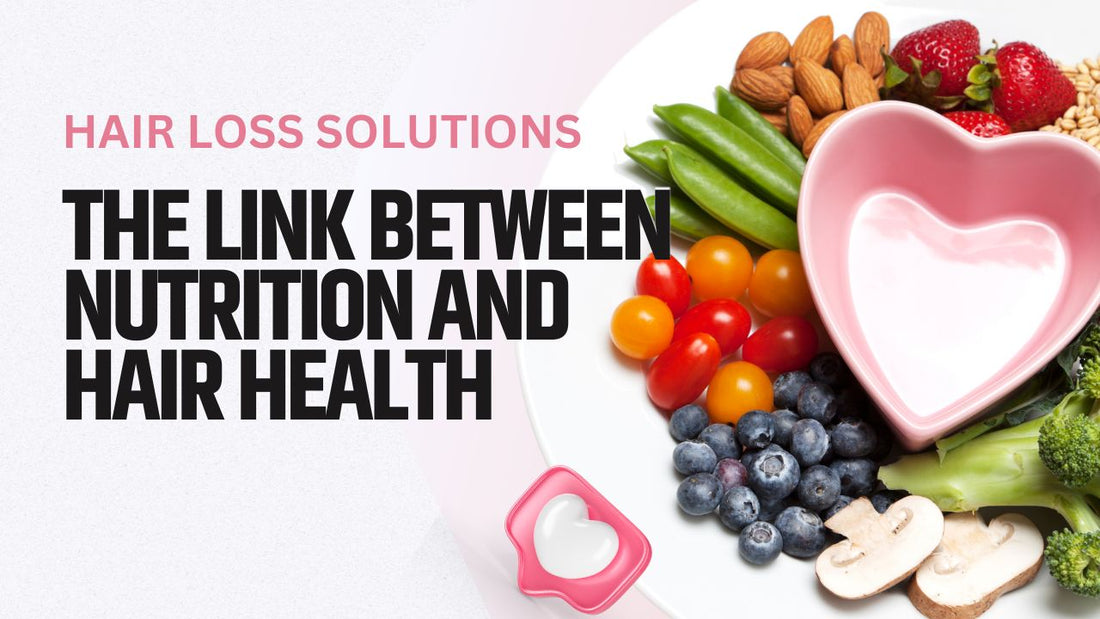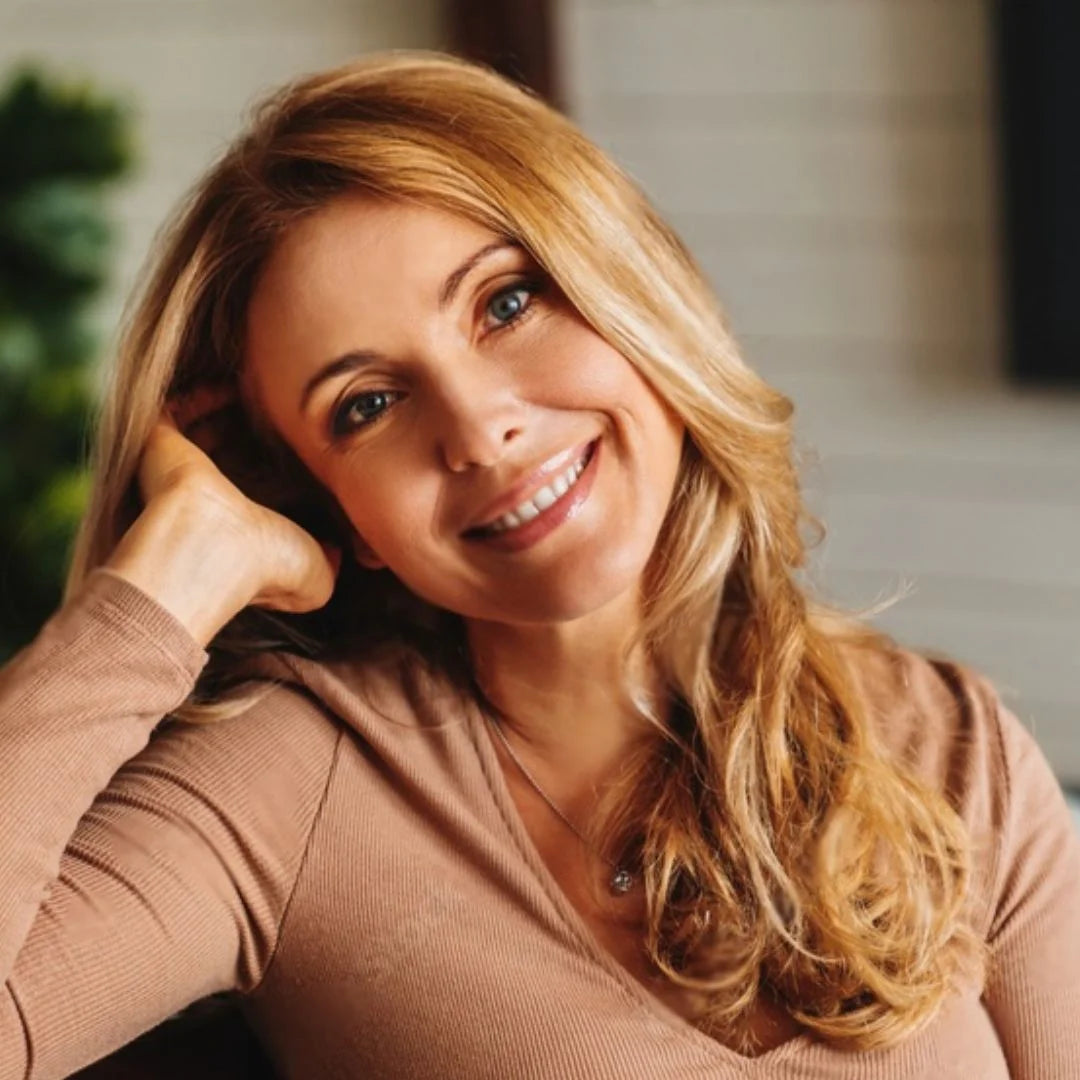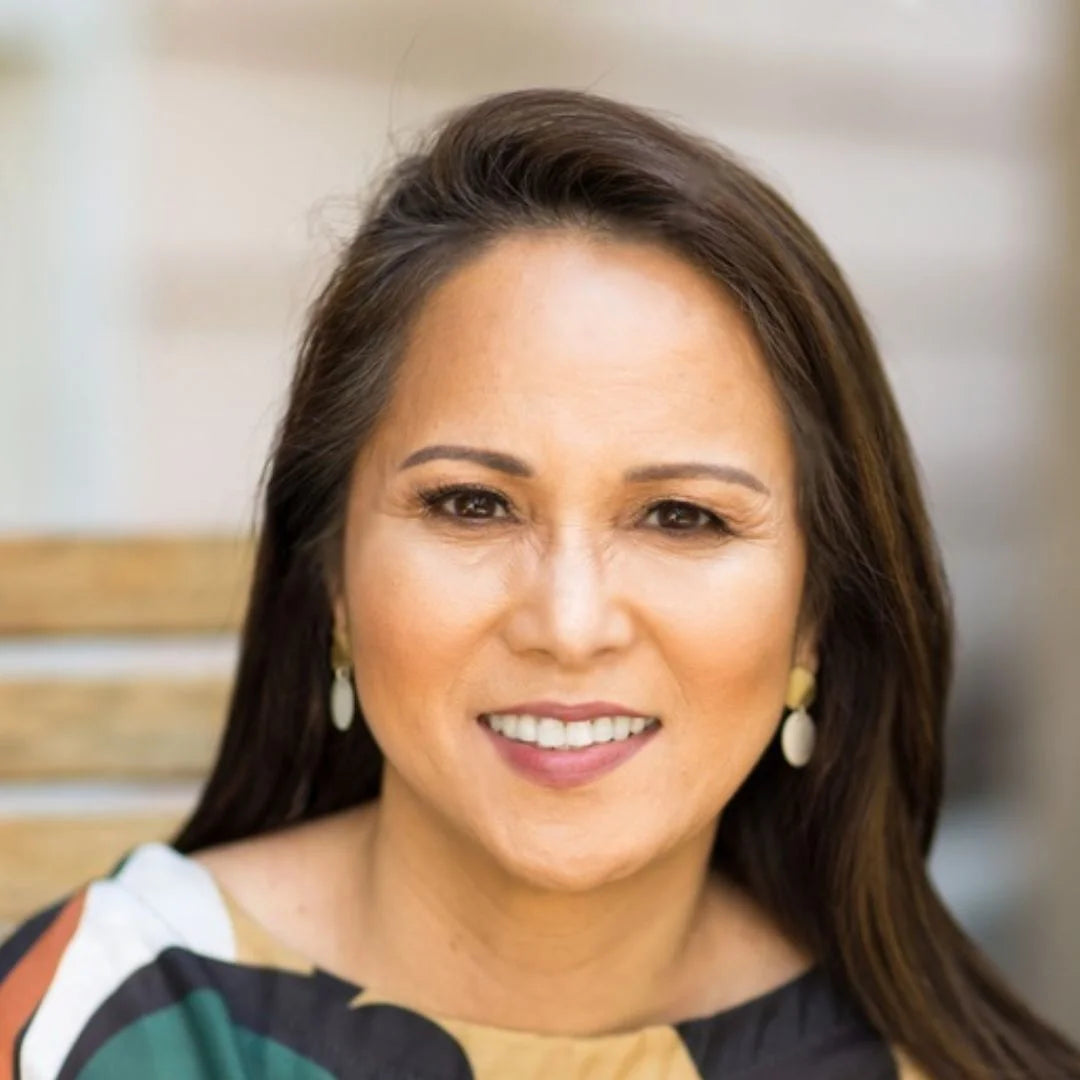
The Link Between Nutrition and Hair Health
Share
Hair is more than just a fashion statement; it's a reflection of our health and well-being. A full, lustrous mane is often associated with vitality while thinning or damaged hair can signify underlying health issues. The key to healthy and beautiful hair lies not just in the products we use but also in what we put on our plates. In this comprehensive guide, we'll explore the intricate connection between nutrition and hair health, understand the building blocks for vibrant locks, and how you can nourish your hair from within.

Understanding Hair Structure
Before we explore the role of nutrition in maintaining hair health, it's vital to understand the structure and growth of hair. Hair is primarily composed of a protein known as keratin, serving as the building block for each strand. The hair growth cycle comprises stages during which hair follicles generate, take a break, and naturally shed hair. Nutrition significantly impacts this cycle, influencing both the texture and abundance of hair.

Essential Nutrients for Healthy Hair
Proteins for Hair Structure
Proteins are the building blocks of hair, making up approximately 95% of its composition. They are essential for the growth, repair, and strength of hair strands. Proteins such as keratin provide structural support, ensuring that hair remains strong and resilient. Without an adequate protein intake, hair can become weak and brittle, leading to increased breakage and hair loss.

To promote healthy hair, include protein-rich foods in your diet. Lean sources like poultry, fish, eggs, and legumes are excellent choices. Additionally, dairy products like yogurt and milk provide both protein and essential vitamins for hair health.
Vitamins for Hair Growth
Various vitamins are vital for promoting hair growth and overall hair health. Here are some key vitamins and their roles:
- Vitamin A: Supports the production of sebum, a natural hair conditioner.
- Vitamin C: Aids in collagen production, crucial for hair structure.
- Vitamin D: Helps maintain hair follicles' health.
- Vitamin E: Enhances blood circulation to the scalp, promoting hair growth.
To ensure you're getting these vitamins, incorporate foods like carrots, citrus fruits, fatty fish, and nuts into your diet.

Minerals for Strong Hair
Minerals like iron, zinc, and selenium are essential for maintaining hair strength and preventing hair loss. Iron deficiency, in particular, can lead to hair thinning and increased shedding. Zinc contributes to hair tissue growth and repair, while selenium plays a role in maintaining the scalp's health.
Include iron-rich foods such as red meat, lentils, and spinach in your diet. Additionally, nuts, seeds, and whole grains are excellent sources of zinc and selenium.

Omega-3 Fatty Acids for Scalp Health
Omega-3 fatty acids, found in fatty fish like salmon and mackerel, as well as flaxseeds and walnuts, are crucial for scalp health. These fatty acids help reduce inflammation, improving hair follicle function. They also contribute to hair's natural shine and luster.
Water for Hydration
Staying well-hydrated is vital for hair health. Dehydration can lead to dry, brittle hair that is prone to breakage. Make sure to drink enough water throughout the day to maintain the optimal moisture balance in your hair and scalp.

Nutrition and Hair Loss
Common Nutritional Deficiencies and Hair Loss
Hair loss can often be attributed to nutritional deficiencies. Inadequate intake of essential nutrients can disrupt the hair growth cycle, leading to hair thinning and shedding. Common deficiencies associated with hair loss include iron, vitamin D, and biotin.
Maintaining a balanced diet rich in these nutrients can help prevent or alleviate hair loss caused by deficiencies. If you suspect a deficiency is contributing to your hair loss, consult with a healthcare professional for guidance.

The Impact of Crash Diets
Crash diets and extreme weight loss regimens can have adverse effects on hair health. Rapid weight loss can shock the body, leading to increased hair shedding. Furthermore, crash diets often lack essential nutrients, causing hair to become weak and brittle.
It's important to prioritize a balanced and sustainable approach to weight management to support healthy hair growth.
A Nutrient-Rich Diet for Healthy Hair
Now that we've explored the vital nutrients for hair health, let's discuss practical ways to incorporate them into your diet.

Incorporating Lean Proteins
Lean proteins, such as chicken, turkey, and lean cuts of beef or pork, are excellent sources of essential amino acids necessary for hair structure. Include these proteins in your meals to promote hair strength and growth.
Eating a Variety of Fruits and Vegetables
Fruits and vegetables provide a wide range of vitamins and antioxidants that benefit hair health. Opt for a colorful variety, including berries, citrus fruits, leafy greens, and carrots. These foods supply essential vitamins like A, C, and E, which support hair growth and overall well-being.
Choosing Whole Grains
Whole grains like brown rice, quinoa, and oats are rich in biotin and other B vitamins essential for healthy hair. Replace refined grains with whole grains to ensure you're getting these important nutrients.
Including Healthy Fats
Healthy fats found in avocados, nuts, seeds, and olive oil contribute to scalp health and hair shine. Incorporate these fats into your diet in moderation to support overall hair health.
Hydration Habits
Maintain hydration by drinking water throughout the day. You can also boost hydration with herbal teas and water-rich fruits like watermelon and cucumber.
Supplements for Hair Health
While a balanced diet should provide most of the essential nutrients for hair health, some individuals may benefit from supplements.

When to Consider Supplements
Supplements may be considered when a deficiency is identified through blood tests or when hair loss persists despite dietary improvements. Always consult a healthcare professional before starting any supplements.
Popular Supplements for Hair Growth
Some popular supplements for hair health include:
- Biotin: Known for its role in hair and nail growth.
- Collagen: Supports hair structure and elasticity.
- Omega-3 Fish Oil: Provides essential fatty acids for scalp health.
- Iron: Necessary for preventing iron-deficiency-related hair loss.
Lifestyle Factors for Healthy Hair
In addition to nutrition, several lifestyle factors contribute to hair health.
Stress Management
Stress can disrupt the hair growth cycle, leading to increased shedding. Incorporate stress-reduction techniques such as meditation, yoga, or mindfulness into your routine to support both your mental well-being and your hair's health.

Regular Exercise
Physical activity promotes overall well-being, including healthy hair. Engage in regular exercise to enhance blood circulation to the scalp, which can stimulate hair follicles and promote hair growth.

Seeking Professional Help
If you experience persistent hair loss or have concerns about your hair's health, consult with a healthcare professional, dermatologist, or trichologist. These specialists can diagnose and address underlying issues, providing personalized recommendations and treatments.
The Role of Diet in Nutrition and Hair Health
Now that we have a foundational understanding of hair's composition and growth cycle, let's delve into the intricate relationship between your diet, nutrition, and hair health.
Spotlight: Proactive Rosemary Hair Booster Oil – Elevating Your Hair Growth Journey
In our exploration of natural remedies for hair loss, one particular product stands out as a comprehensive solution for promoting hair health and growth: Proactive Rosemary Hair Booster Oil. While we've discussed the nutritional benefits of rosemary oil, it's essential to shed light on this specialized elixir, which combines the power of rosemary oil with a carefully selected blend of other natural ingredients.
A Powerful Blend of Natural Ingredients
Proactive Rosemary Hair Booster Oil harnesses the strengths of several key ingredients, each contributing to its effectiveness in nourishing and revitalizing hair. Let's delve into the components that make this oil a standout product:
- Vitis Vinifera (Grape) Seed Oil: Grape seed oil is lightweight and non-greasy, packed with vitamin E and linoleic acid to promote hair health and moisture retention.
- Ricinus Communis (Castor) Seed Oil: Renowned for strengthening hair shafts and promoting growth, castor oil also acts as a natural conditioner, preventing hair breakage.
- Ethyl-hexyl Palmitate: Enhances the oil's texture and facilitates easy application to the scalp and hair.
- Macadamia Integrifolia Seed Oil: Rich in fatty acids, macadamia oil provides deep nourishment to hair follicles, promoting overall hair health.
- Simmondsia Chinensis (Jojoba) Seed Oil: Jojoba oil closely mimics the scalp's natural oils, hydrating and balancing it to prevent excess oiliness.
- Lavandula Angustifolia (Lavender) Oil: Lavender oil soothes the scalp, alleviating irritation and stress-related hair loss.
- Zingiber Officinale (Ginger) Root Oil: Ginger root oil boosts blood circulation in the scalp, promoting hair growth and preventing loss.
- Melaleuca Alternifolia (Tea Tree) Leaf Oil: With antimicrobial properties, tea tree oil helps maintain a clean and healthy scalp.
- Mentha Piperita (Peppermint) Oil: Peppermint oil offers a refreshing sensation and stimulates hair follicles for improved growth.
- Rosmarinus Officinalis (Rosemary) Leaf Oil: Rosemary oil, a key component, has numerous benefits for scalp health and hair growth.
- Bisabolol: Derived from chamomile, bisabolol soothes the scalp and reduces irritation, creating optimal conditions for hair growth.
Proactive Rosemary Hair Booster Oil combines these ingredients in perfect harmony, creating a formula that addresses various aspects of hair health, from nourishment and strength to growth stimulation and scalp wellness.
Why Choose Proactive Rosemary Hair Booster Oil
Choosing the right product for your hair care routine is essential, and Proactive Rosemary Hair Booster Oil offers several advantages:
- Comprehensive Solution: This oil addresses multiple aspects of hair health, making it a well-rounded product for those dealing with hair loss or looking to improve the overall quality of their hair.
- Natural and Safe: The oil's ingredients are predominantly natural, minimizing the risk of adverse effects and making it suitable for regular use.
- Scientifically Formulated: Proactive Rosemary Hair Booster Oil is developed using scientific insights into hair health, ensuring its effectiveness.
- Easy Application: The oil's lightweight texture ensures easy and non-greasy application, making it comfortable for daily use.
By incorporating Proactive Rosemary Hair Booster Oil into your hair care routine, you can elevate your journey to healthier, more vibrant hair. Whether you're combatting hair loss or simply seeking to enhance the natural beauty of your locks, this product offers a holistic solution backed by the power of natural ingredients.
Conclusion: Nourishing Your Hair from Within
In conclusion, the link between nutrition and hair health is undeniable. A well-balanced diet rich in essential nutrients, along with a healthy lifestyle, is the foundation for vibrant and strong hair. Remember that hair health is a reflection of your overall well-being, and nourishing your hair from within is the first step to achieving the luscious locks you desire.
FAQs (Frequently Asked Questions)
1. Can specific foods make my hair grow faster?
While specific foods won't dramatically speed up hair growth, a balanced diet rich in essential nutrients can support healthy hair growth.
2. Do hair supplements really work?
Hair supplements can be effective if you have specific deficiencies that impact hair health. Consult with a healthcare professional before starting any supplements.
3. How can I prevent hair loss caused by nutritional deficiencies?
To prevent hair loss due to nutritional deficiencies, maintain a balanced diet with a variety of nutrient-rich foods. If you suspect a deficiency, consult with a healthcare professional.
4. Can dehydration cause hair problems?
Yes, dehydration can lead to dry and brittle hair. Staying well-hydrated is essential for healthy hair and scalp.
5. What should I do if I experience severe hair loss?
If you experience severe or persistent hair loss, it's important to consult with a healthcare professional or dermatologist for a thorough evaluation and personalized treatment plan.

















